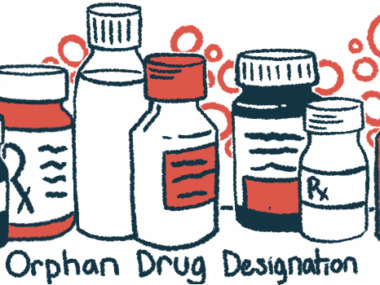Mitochondria-targeting treatments for AML focus of research grant
Personalizing care for patients' specific mutations among team's goals
Written by |

A team led by a Rice University researcher received a grant to investigate treatments targeting mitochondria for acute amyloid leukemia (AML), a type of blood cancer.
“Cancer cells grow so rapidly that they place a tremendous burden on their mitochondria — the cell’s energy producers — but they also disrupt the mechanisms that keep these mitochondria healthy,” said Natasha Kirienko, PhD, associate professor of biosciences and the leader of the project, in a Rice news story. “We’ve discovered that targeting this mitochondrial dysfunction can selectively kill AML cells while leaving healthy blood cells unharmed.”
The grant from the Cancer Prevention and Research Institute of Texas will help Kirienko and her colleagues build off this discovery. Their aims include personalizing care by optimizing mitochondria-targeting therapies for individuals’ specific genetic mutations and testing therapies in mouse models.
Team wants to get away from one-size-fits-all model
AML originates in the bone marrow, the soft, spongy tissue inside certain bones where blood cells are formed. In AML, genetic mutations disrupt normal cell development, causing immature blood cells to grow uncontrollably within the bone marrow and spread throughout the body via the bloodstream. To sustain this unrestrained growth, leukemia cells undergo metabolic reprogramming, adapting their energy production to fuel rapid growth.
However, the increased demands on mitochondria can also work against cancer cells. “Normally, damaged mitochondria are recycled to produce healthy mitochondria,” the researchers wrote in their grant abstract. “But cancer disrupts this quality control process.”
With damaged mitochondria accumulating as cells’ energy systems work in overdrive, biochemical interventions can cause AML cells to die while sparing healthy cells.
By testing how different mutations affect drug responses, we’re working toward therapies that are more tailored to individual patients, especially those whose cancer doesn’t respond to standard treatments.
Kirienko’s team aims to assess how different genetic mutations impact the response to treatment with new mitochondria-targeting drugs. They will then use this information to develop personalized therapeutic combinations. Combining new medications with current AML treatments may help to maximize efficacy while reducing side effects.
“We want to get away from a one-size-fits-all model,” said Natalia Baran, MD, PhD, a leukemia specialist at University Hospital Bern in Switzerland and a collaborator on the project. “By testing how different mutations affect drug responses, we’re working toward therapies that are more tailored to individual patients, especially those whose cancer doesn’t respond to standard treatments.”
Mouse models to be injected with human AML cells
The research project will also include work in mouse models injected with human AML cells. Testing treatment combinations in animals may help the team predict effects in humans.
“This kind of translational approach is essential,” said Scott Gilbertson, PhD, the M.D. Anderson professor of chemistry at the University of Houston and another of Kirienko’s collaborators. “We’re not just testing molecules in a dish — we’re trying to understand how well they function in a living system and to optimize them for maximum therapeutic benefit.”
Therapies targeting mitochondria may have applications outside of AML in other treatment-resistant cancers. The team hopes new medications may be more effective and safer than existing options.
“This is about offering hope to patients who have exhausted standard treatments,” Kirienko said. “We’re not just looking to extend life but to improve its quality by reducing the toll of treatment itself.”




